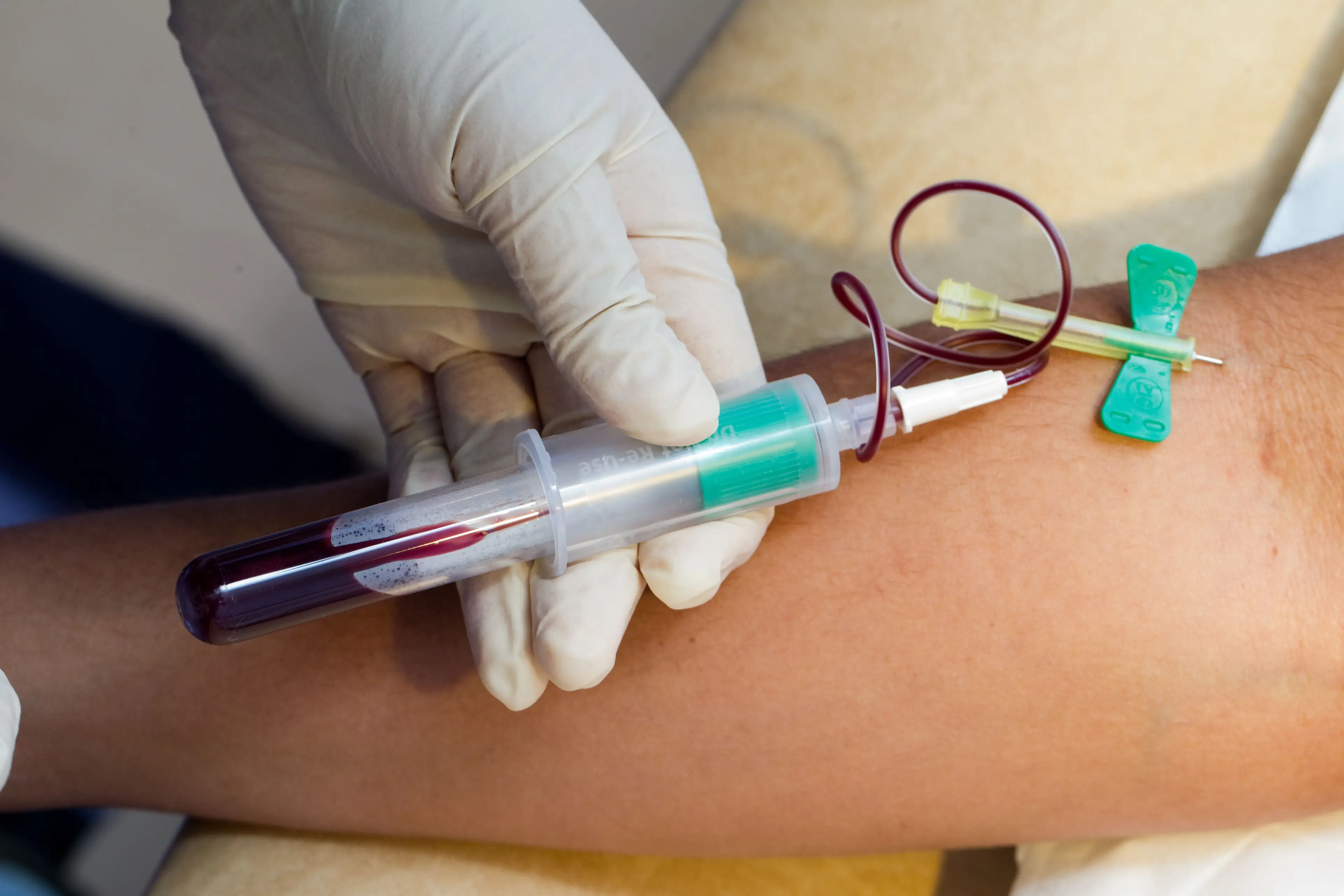
Scientists have developed a blood test capable of detecting Alzheimer's disease before people experience any symptoms.
Alzheimer's disease is the most common form of dementia across the globe, said to account for between 60-70% of all cases, according to the World Health Organisation. There are currently around 900,000 people with dementia in the UK, a figure projected to rise to 1.6 million by 2040, as per the Alzheimer's Society.
An estimated 209,600 people will develop dementia this year, and there's currently no cure for Alzheimer's disease or any other type of dementia. However, a new cost-effective test could pave the way for quicker diagnoses and treatment.

Advert
The test was developed at the Washington University School of Medicine in St. Louis, and it's already proven 'highly accurate' in a study involving nearly 500 patients across three continents, according to a press release.
Published in the Neurology journal, the study involved collecting blood samples from 465 people already enrolled in Alzheimer's studies across US, Sweden and Australia, with all of them partaking in separate Alzheimer's disease trials.

'The blood test assesses whether amyloid plaques have begun accumulating in the brain based on the ratio of the levels of the amyloid beta proteins Aβ42 and Aβ40 in the blood,' the university explained, and of all the participants, 46 ended up being diagnosed with Alzheimer's, while 203 had mild cognitive impairment.
Up until now, these amyloid protein plaques could only be detected via expensive brain scans and invasive spinal taps; for reference, a radioactive brain scan costs between $5,000 to $8,000 per scan, and testing for cerebrospinal fluid costs nearly $1,000. Pre-screening with a $500 blood test could dramatically reduce costs.

'A blood test for Alzheimer’s provides a huge boost for Alzheimer’s research and diagnosis, drastically cutting the time and cost of identifying patients for clinical trials and spurring the development of new treatment options. As new drugs become available, a blood test could determine who might benefit from treatment, including those at very early stages of the disease,' lead author Randall J. Bateman said in a statement.
'Our study shows that the blood test provides a robust measure for detecting amyloid plaques associated with Alzheimer’s disease, even among patients not yet experiencing cognitive declines. These results suggest the test can be useful in identifying nonimpaired patients who may be at risk for future dementia, offering them the opportunity to get enrolled in clinical trials when early intervention has the potential to do the most good.'
While the test has been given CLIA certification, it's still not covered by the majority of health insurance firms.
If you have a story you want to tell, send it to UNILAD via [email protected]